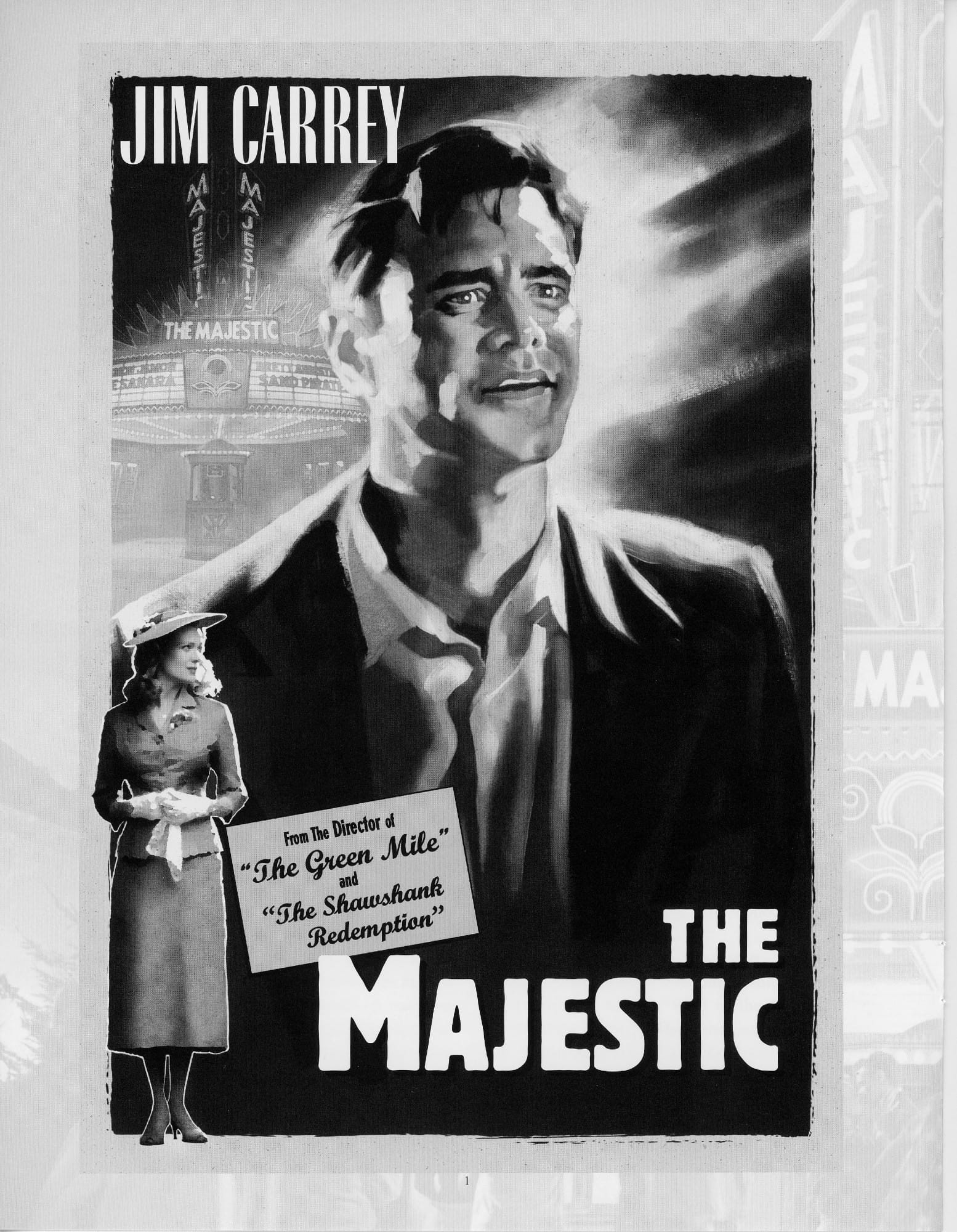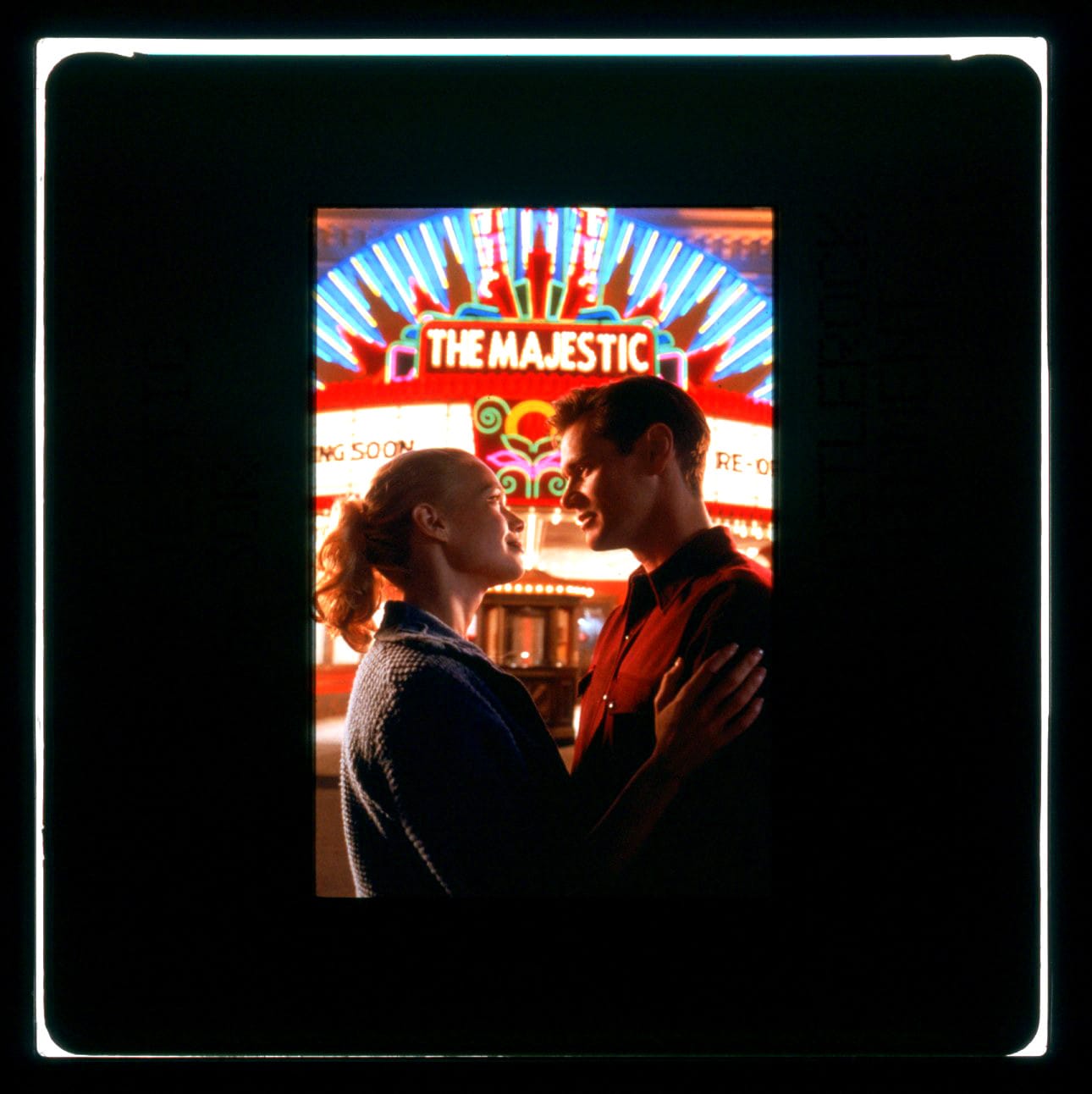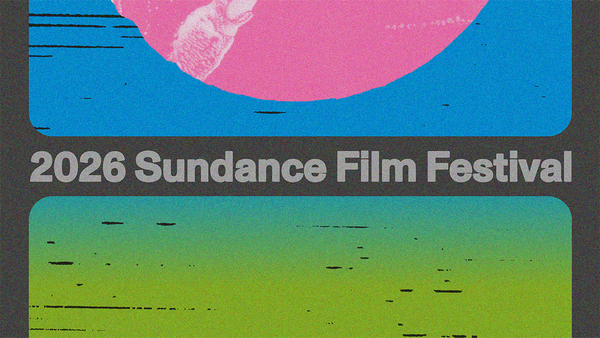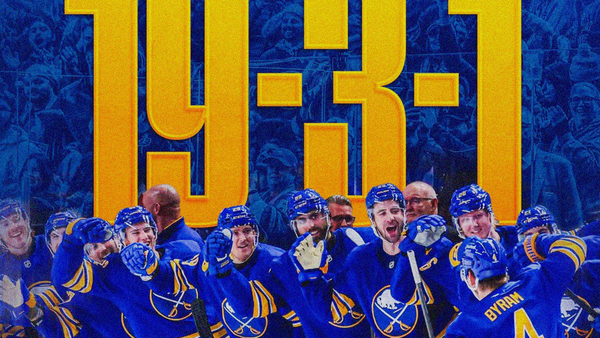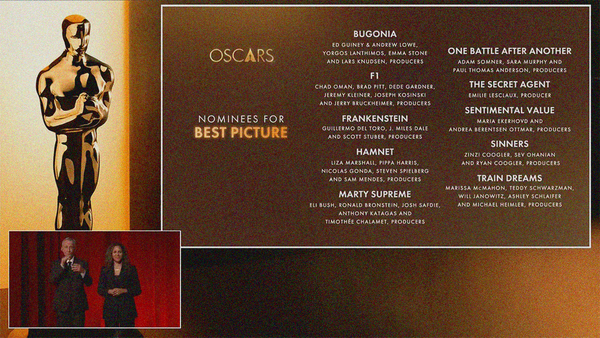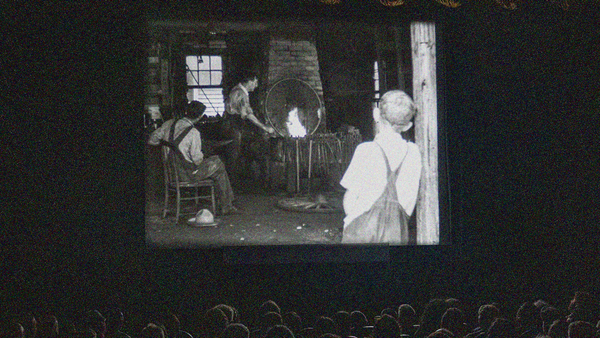Week Ending 11/7/25
FYC season has begun
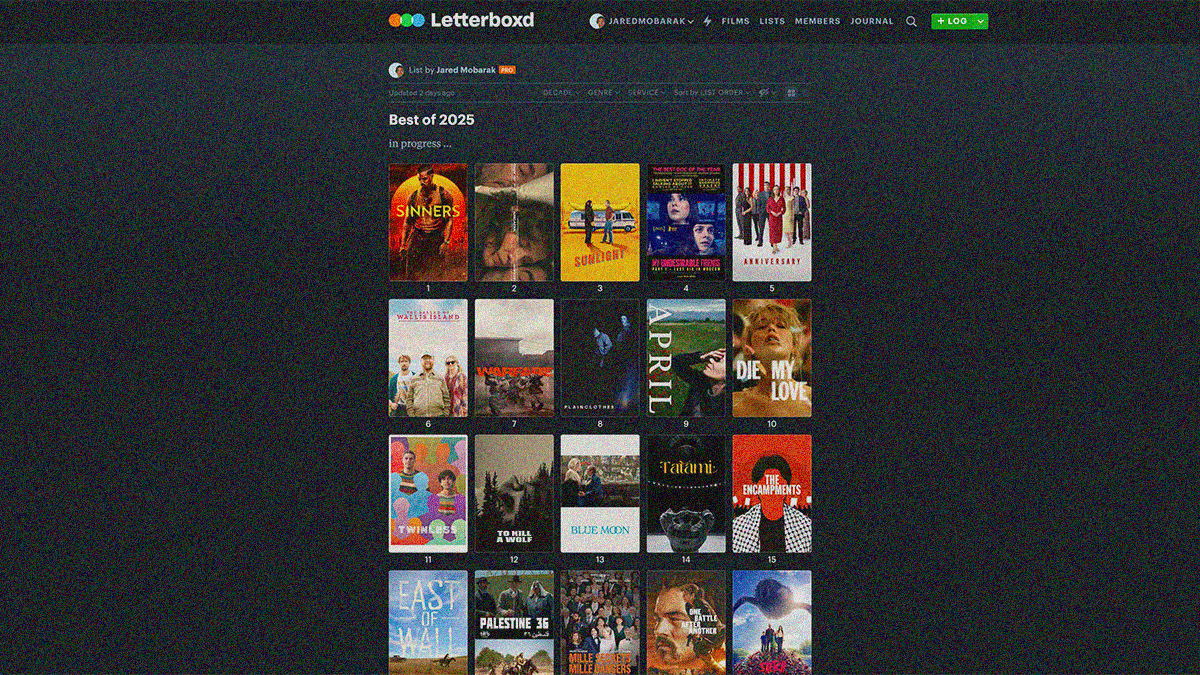
I'm always woefully behind on keeping up with my preliminary voting lists once summer ends and I bury myself in Fantasia and TIFF. So, when the first few studios started sending their 2025 release slates for FYC consideration this week, I went to my Google Sheet and saw I hadn't updated it since July.
Thankfully, I religiously log viewings to my Letterboxd. So, after an hour or so of going through that diary, figuring out which titles are 2025 or 2026 releases, and ranking things, I finally got my Top Ten Films of 2025 list current. Now I just need to remember to adjust it after every new addition.
- Sinners, d. Ryan Coogler
- Arcadia, d. Yorgos Zois
- Sunlight, d. Nina Conti
- My Undesirable Friends: Part I – Last Air in Moscow, d. Julia Loktev
- Anniversary, d. Jan Komasa
- The Ballad of Wallis Island, d. James Griffiths
- Warfare, d. Ray Mendoza & Alex Garland
- Plainclothes, d. Carmen Emmi
- April, d. Dea Kulumbegashvili
- Die My Love, d. Lynne Ramsay
I go by the theatrical release date of the country of origin rather than their US dates because, as is the case currently, not every international production secures stateside distribution. Despite Arcadia being selected as Greece's 2026 Oscar submission, it remains unreleased here. So, while it's my #2, it won't be included on my ballots since those are all US-based. Rather than simply shift everything up a spot, however, I'll actually be adding The Sparrow in the Chimney due to it hitting American theaters this year. But it officially sits on my Top Ten Films of 2024 since it released in Germany last year.
I've also got my watchlist going with those titles I'm hoping to have access to watch before ballots are due. Any glaring omissions that you think I missed? Please reach out and let me know.

Ballad of a Small Player
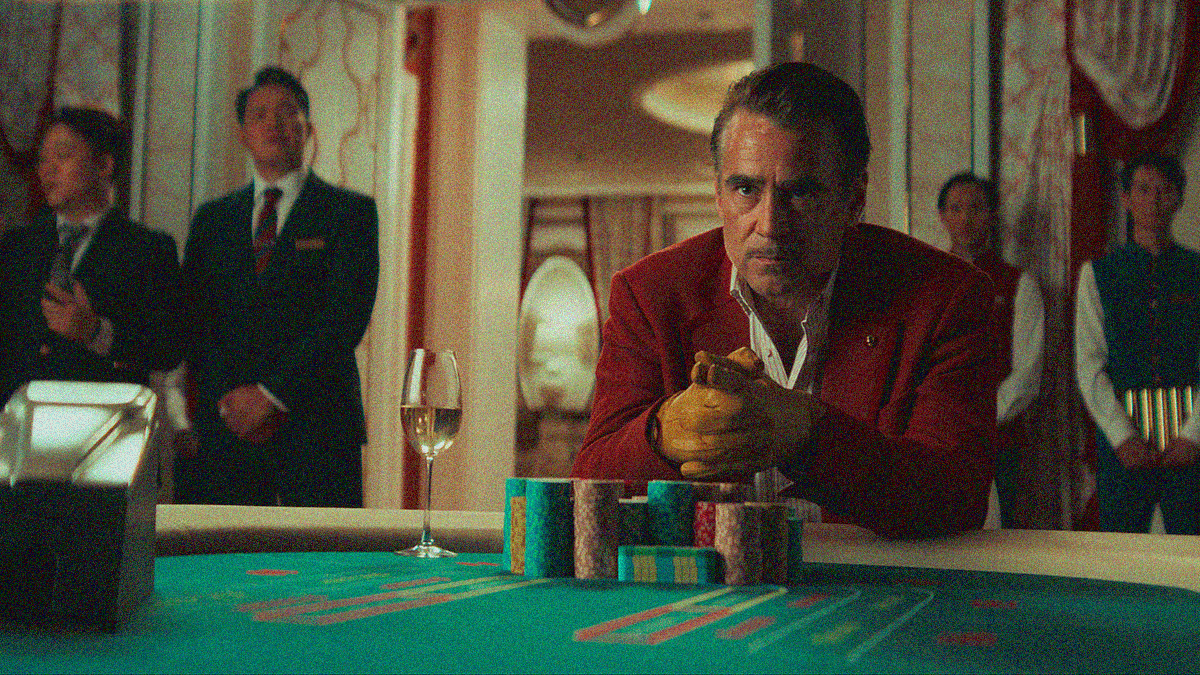
Manic pixie dream girls really can change your life. I just wish the whole propped up its comic energy higher than its redemptive sincerity (stay for the end credits to witness "the dance") since the cast proves itself game for the absurdity inherent to miracles, ghosts, and luck.
If so, the silliness of presenting Lord Doyle’s eleventh hour revelation as though we should also be surprised would have hit as intentional rather than begging us to ask, "Did Edward Berger really not know his direction and sound design already told us everything an hour prior?"
The way Colin Farrell mangles those cards to the point of being unusable every single hand is extremely satisfying. Big mouths. Small necks. Can’t lose.
7/10
The Birdcage
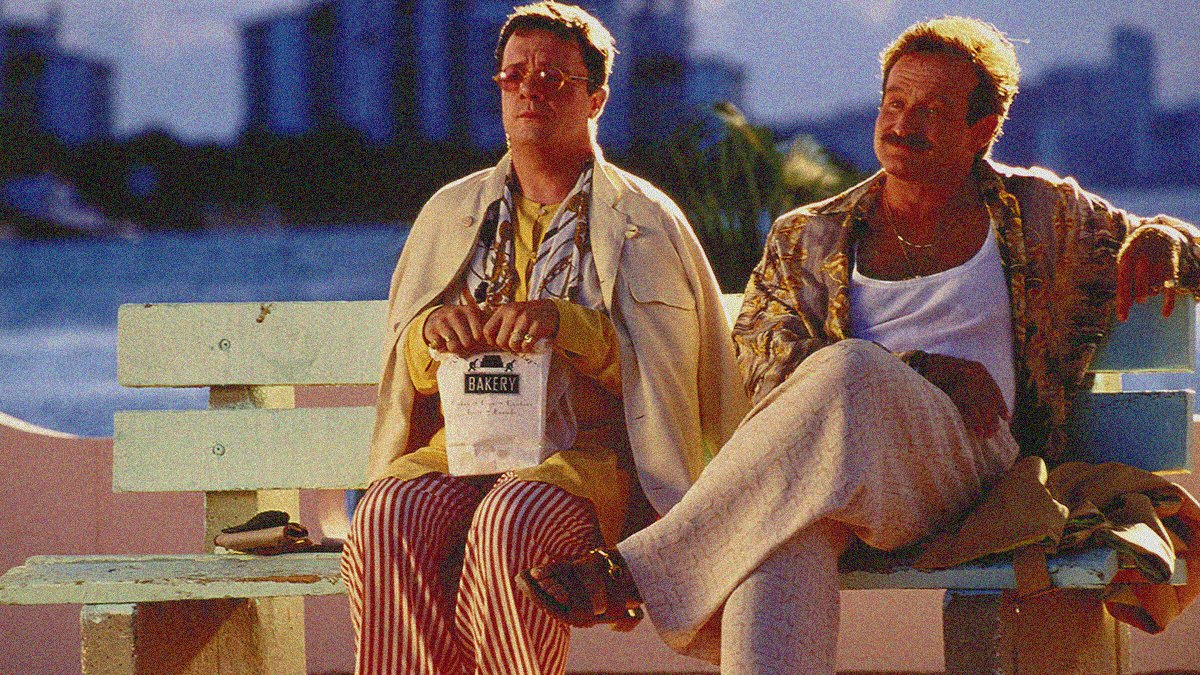
Here's all the evidence you need to refute everyone who says our nation's politics only got this bad because of Trump. Yes, he weaponized it, but Senator and Mrs. Keeley are the specific kind of conservative patriarchal couple that allowed him to do so. "That's exactly what Rush Limbaugh said!" ... chef's kiss.
I'm glad this held up over the past thirty years. Mike Nichols, Elaine May, Robin Williams, Gene Hackman, Nathan Lane, and Dianne Wiest (amongst others) should have been enough to assure me it would, but you never really know with subject matter that more often than not doesn't. But The Birdcage understands who it's ridiculing and who it's celebrating from frame number one.
And, considering my own parents skirt very close to being the Keeleys now, my biggest surprise is remembering how much of a staple this film was in our household during the 90s. That's the real truth of what Trump did. He made those on the political fence believe bigotry was a better choice than empathy.
8/10
Christy
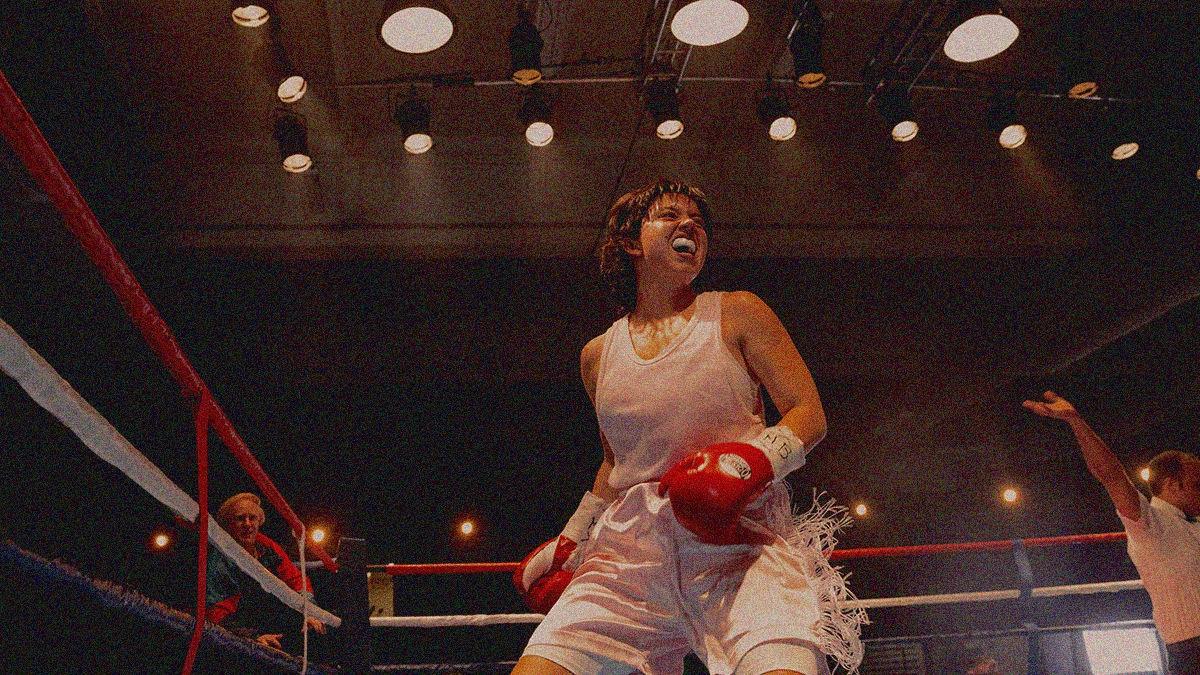
The refrain was always the same: You can be somebody if you listen to what it is I want you to be. Don't ruin this family by being a lesbian. Don't question my authority as your coach. Don't you dare step away from my shadow as your husband despite me being the one who needs you to survive. Listening to those sentiments long enough will confuse you, but having them actually bring the success you crave will get you indoctrinated into believing they might be true. If they are, however, so too must the threats and hate.
Director David Michôd and co-writer Mirrah Foulkes pull no punches building the script for Christy to prove these facts true. Yes, this is the story of the first woman to ever fight on a Pay-per-view card. Yes, Christy Salters (Sydney Sweeney) held the WBC super welterweight title and was the first woman to be elected to the International Boxing Hall of Fame. But the message—intentionally so considering her current work as a motivational speaker against domestic abuse—is about the insidious ways the patriarchy seeks to control women.
We see it straight away. Not from Christy's father Johnny (an unrecognizable Ethan Embry) who proves himself a doormat, but from a mother (Merritt Wever's vile Joyce) too worried about what the world might say about her parenting to even consider her own child's happiness. From there the psychological (and physical) violence is passed to a trainer (despite initially clocking his misogyny and temper) who soon also becomes her manager and eventually her husband (Ben Foster's Jim Martin). And, inevitably, it passes onto Christy herself too.
To the film's credit, there's never a moment where we don't see where this is all heading. The script and performances all work towards impending tragedy with purpose to the point where I knew what was coming even though I didn't actually know what was coming (boxing has never been a sport I kept tabs on). So, it does prove somewhat frustrating when that foregone conclusion is continuously pushed back. Because it's one thing to be true to a life with additional context, but it's another to show the same thing over and over again.
The moment we finally witness Jim's rage boiling over in the face of a reality that Christy was beginning to understand she didn't need him as much as he needed her, I thought we were in the movie's final leg. I was therefore surprised to see we'd barely crossed the forty-five-minute mark. So, when the Don King era (a scene-stealing Chad L. Coleman) arrived to deliver more of the same but with extra money and celebrity, I again thought "here comes the climax" only to realize there was still almost an hour left.
Such is the delicate dance with biopics. You want to be true to the subject, but you must also pay attention to what makes a compelling film. That means knowing when you're saying the same thing multiple times and deciding if the redundancy is additive or subtractive. Don't get me wrong: Sweeney and Foster are both very good and spending more time with them isn't inherently a bad thing. But we can only watch his jealousy and her resentment grow so often without the payoff before we become weary that the whole has gone off-track.
It would also be different if anyone other than Christy evolved. If her mother somehow came to her senses and made the constant examples of her letting her daughter down create something other than a monotonous pattern, the time would be worthwhile. Instead, we find ourselves perking up only to receive another helping of what we already know. So, by the time Michôd and company finally do get us to the horrific result, we've stopped perking up. What should be a "peek-a-boo" (as the boxers say) merely lands with a "finally!"
The same can be said for Christy's allies too. Whether her ex-girlfriend Rosie (Jess Gabor) constantly being pushed aside for the fame a heteronormative lifestyle affords or Big Jeff (Bryan Hibbard) constantly hinting at knowing what is happening behind the scenes without ever stepping in or Lisa Holewyne (Katy O'Brian) constantly providing an olive branch Christy swats away with her brainwashed identity, we're inundated with repetition. While important to enhance the tragedy of this life, it's a momentum destroyer on-screen.
I hate to use the phrase, but Christy becomes too much of a good thing. The pieces are so powerful that an inability to know when enough is enough renders that power tiresome. Thankfully, the energy supplied by the acting is high enough to push through and appreciate the lessons and the woman behind the bludgeoning we're receiving on behalf of the plot. Because this is what happened. Domestic abuse cases do carry on far too long due to coercion and fear. You just need to know your medium and find a balance between facts and pacing.
It also wouldn't hurt to delve deeper into the effects of toxic masculinity and Christy's repression of identity to adhere to its demands. While there are numerous examples of it (Jim saying Christy isn't a feminist and Christy saying she isn't a role model, Christy berating opponents with gay slurs, etc.) the only two instances of epiphany come as a joke (a very good O'Brien poking fun) and a single line from a post-mortem voiceover. For better or worse, the film values action above introspection.
6/10
Coexistence, My Ass!

Let's be honest. When you sit down to watch Amber Fares' Coexistence, My Ass!, you brace for what Noam Shuster Eliassi and the people she confronts have to say about October 7th. You must because you're living in 2025 and Israel's genocide of the Palestinian people continues through its many supposed ceasefires. I was bracing because I lived through a similar moment via 9/11. I've experienced having my identity change outside of my own control overnight. I went to school a white American and left campus a Brown Arab.
It's therefore no surprise Jewish friends and family who lived in and accepted the experiment that was Oasis of Freedom in Israel, where Noam grew up as a Persian Jew amongst Palestinian Muslims, would change the opposite way. Because their allyship was never real. Their fight for coexistence was always propped up by the reality of their superiority as an oppressor. And it's not just Israeli neighbors suddenly telling Noam that Gaza should be wiped out despite 10/7 being a direct result of Israeli Apartheid. It's her very own aunt.
But I get it. My cousin in 2019 tried to play semantic games by saying we were "still white" because the US census designates Middle Eastern citizens as Caucasian—I guess he was too young to experience 9/11 the way I did. My parents still regularly vote against the rights of the LGBTQ+ population despite saying they have no problems with the community as though one doesn't directly affect the other. People love to find ways to justify their bigotry so they can assuage their guilt via double talk, selective memory, and self-martyrdom.
So, watching Noam continue to stand-up for Palestinians despite her own personal losses in 10/7 is inspiring. To hear her eloquently contextualize the dual reality that Hamas being a terrorist organization doesn't absolve Israel from being an occupying force is exactly what I felt in the aftermath of 9/11. That we as human beings must look beneath the jingoism and knee-jerk desire for vengeance to understand "our" participation in "their" hate. This carnage does not occur in a vacuum. Coexistence only works after equality can be assured.
That's what Noam fights to achieve. It's what she's fought for since a childhood of being thrust in front of cameras with her Palestinian BFF to give Hilary Clinton flowers and be name-dropped by Jane Fonda. It's what drove her to pursue a career in peace activism leading to a job at the United Nations before realizing her pontification was falling on deaf ears. We all eventually discover this fact. That the only people willing to listen are those who already agree. So, jest or not, she took a page from Volodymyr Zelenskyy's book and became a comedian.
Named after Noam's one-woman Harvard show, Fares' film uses that performance as the connective glue to return to as a way of refocusing things before the next real world transition impacts her subject's evolution. She jokes about her adolescence and we see archived footage of it. She jokes about her stay at "Hotel COVID" being like her upbringing in the Oasis of Freedom and see footage of that too. Benjamin Netanyahu runs on a platform to absolve himself of the crimes he's been indicted for and there's Noam protesting in the streets.
Eventually, we get to October 7th and witness the chaos and heartbreak alongside the government's exploitation of both to finally achieve what it sought from the beginning. By making us wait, however, we're able to witness the gradual pathway towards a political landscape that allows it to be possible. Noam's career and pushback run parallel to it. Her experience on public TV inevitably revealing her champion at the station as a fake ally himself. The constant hate posts calling her a traitor. The anti-Bibi brigade specifically fighting for Jewish democracy only.
And why? Because she treats Palestinians as human? Because she's seen in youth and the pandemic (a great viral equalizer) that empathy is much less complicated than men in power would lead us to believe? No. It's because Zionists truly do refuse to see Arabs as anything but animals. That their leadership's decades-long crusade to dehumanize Palestinians has worked to indoctrinate them into not caring whether they live or die. Israelis killed Arabs with impunity the entire occupation, but they only pay attention when they become a target.
It's why Noam's work matters. And why her ability to understand the situation from multiple angles as an Israeli Jew whose Persian heritage makes her skin darker than some Arabs allows her to realize this work must target Zionists in hopes of deprogramming them rather than allies already on-board. But Noam's mother isn't wrong when she says things feel different now that people have "lost their humanity." The global shift to tribalism has made it so those on the wrong side of history have simply replaced their eyes and ears with a bigger mouth.
7/10
Die My Love
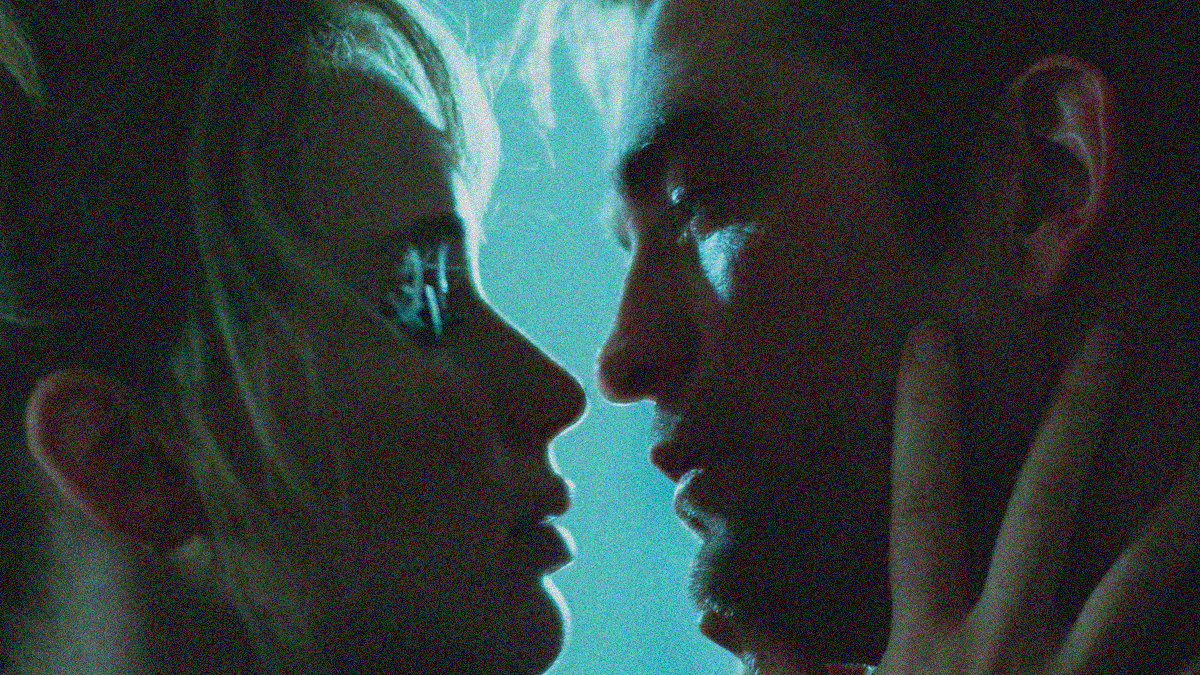
Grace (Jennifer Lawrence) is less than thrilled with the state of the home Jackson (Robert Pattinson) has purchased. Are they leaving the city for the sticks? Maybe. We never really find out. Their story is therefore inextricably tied to this location in disrepair. A place from his past. A place that has seen death. A place with as much chance of being reclaimed by their love as it does destroying it. Because all roads do ultimately lead to tragedy. Uncle Frank's suicide. Harry's (Nick Nolte) dementia. Pam's (Sissy Spacek) loneliness. Grace's psychological prison.
Adapted from Ariana Harwicz's Spanish-language novel, director Lynne Ramsay actually came to Die My Love last. Producer Martin Scorsese read the book first before passing it onto Lawrence with the thought that it would be a perfect vehicle for her to take on the lead role after another project they planned to collaborate on dissolved. She in turn passed it to Ramsay in hopes of bringing it to life before the filmmaker passed and suggested something else due to similar themes as We Need to Talk About Kevin. She eventually relented.
Ramsay then brought on playwright Enda Walsh to help with the script (with Alice Birch earning a credit as well), molding its postpartum drama in a way that centers the mother's instability as a reaction to a world gone mad rather than from an omniscient place focusing on her own madness. That's not to say Grace isn't unravelling to the point of psychosis. It's just that the catalyst for doing so is less about a rejection of the baby than it is a rejection of everyone telling her that her tumult is "normal." Her response: "Then you won't mind if I go to eleven."
Yes, she's struggling with motherhood insofar as the added responsibility that doesn't seem to be getting shared by Jackson. But she loves her child and always puts him first. But she's justifiably tired. Lonely. Restless. Bored. And instead of meeting her at her most playfully weird to break the monotony, Jackson brings home a puppy. Another untrained life to care for while he's away. So, Grace tries to escape by visiting his mother nearby only to find Pam losing her own sense of self with Harry gone. Her comforting "everything will be fine" loses credulity.
Many minutes go by where Grace (and the audience) can't outrun the barking and whining of that dog. If she weren't already loosening her grip on reality, the incessant noise would surely do it anyway. Her temper grows shorter. Her patience with Jackson dissolves. And her actions turn from sarcastic frustration to chaotic exhibitionism. It's not therefore a mistake that Ramsay calls the finished product a dark comedy. It very much is exactly that due to the lengths Grace goes to silence the platitudes of the dull automatons surrounding her.
And it only gets funnier once you add in Jackson's perpetual pendulum swings between incredulity and panic. He thinks he can match Grace's energy as a means of tiring her out or finding common ground, but he's unprepared for just how done with the charade of civility and self-preservation she's become. So, every time he pushes her to the edge, he falls to pieces trying to bring her back to sanity. Regardless of whether he's cheating on her or she merely thinks it, he truly does love her and believes it's enough to save them.
We know it's not, though. Ramsay doesn't cut from their arrival at that house to a forest burning in flames because she thinks it's a cool segue. No, she's preparing us for the incendiary and often violent events upon the horizon. She's visualizing the guttural scream that Die My Love represents. The inevitable reality that love, children, family, and shelter aren't answers to a person's pain. They are merely distractions. They're Band-aids able to quell the fire just long enough for some idiot to remind them it's all a socially manufactured façade.
I love the implications of this. Ramsay and company using the flawed safety of a heteronormative blueprint of happiness as the uncanny Stepford valley to be shattered rather than an archaic, 50s-sitcom conservative filter because patriarchy doesn't see a difference. And I love that the film positions Grace as the model of sanity rather than the person who needs fixing. Because parenthood is crazy and sacrificing your identity for love isn't tenable. We should all be jumping through sliding glass windows and stripping to swim in the pool at a child's party.
Lawrence owns the screen while giving life to the impulses we're told to ignore. Even just to tell off a cashier trying to get through her own mundane day. Her aptly named Grace has had enough of the word. She's had enough of the constraints attached to the results of her willingness to give into patterns we're conditioned to believe pave a road towards happiness. Because if returning to this life means becoming one of these obsequious, small talk-loving robots, is it actually worth the compromise? Enough is enough.
Pattinson is very good as well. His Jackson is pushed to reject Grace via the embarrassment she foists upon him, but he also cannot fathom living without her. He tries until things start to go back to "normal" so he can forget again and return to his own patterns of being a martyr. Because he's stuck too—in the opposite way. He's stuck in her hurricane when all he wants is to be one of those robots. To live quietly alongside Grace like his parents. To trust implicitly and lose his own memory so he'll never have to remember the pain of future loss.
The title is thus less about the characters than their bond. It's imploring them to set fire to what it is that connects them so they can pursue their desires without the other holding them back. Everything we see therefore centers the destructive nature of Grace's actions rather than her place within them. What will be the final straw? What will finally allow him to let her go? And Ramsay edits it together like a Terrence Malick film with poetic vignettes that feel culled from a much greater wealth of footage (see LaKeith Stanfield).
What will surely detract some audiences, however, is her decision to provide an early flashback showing Harry after we know he's passed. By doing so, it's easy to find yourself uncertain of time and place—if not reality itself. Is Grace and Jackson's wedding a flashback or were they never married to begin with? Do they go to the beach after a mental facility stint or is it a manifestation of her PTSD? What else is fantasy? It honestly doesn't matter, though, since the motive and result are the same. No matter how much she loves him, this can't be her life.
8/10
If You See Something
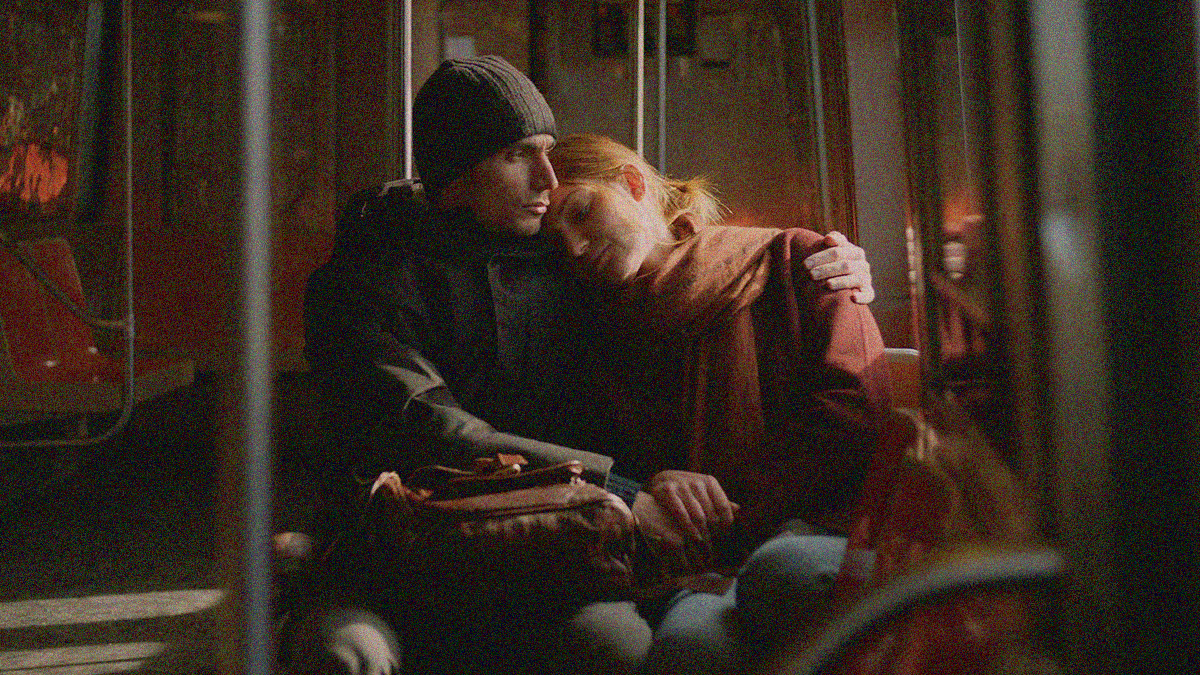
It's all in the title: If You See Something. Much like the voice we hear over the subway train's speakers during the film, the phrase's plea for Good Samaritans has unfortunately been co-opted into a tool for witch hunts. Because it's one thing to see something truly suspicious and call the authorities, but it's another to let your personal bias weaponize your fears into presuming something is suspicious when it most certainly is not. "This bag is ticking" is different from "A Brown man with a bag just sat down next to me and smiled."
But there's another side of the phrase when considering our ability to empathize. If you see someone in pain, will you ask what's wrong and discover how you can help or ignore them and go about your day? Moreover, which will you choose when the person struggling is a stranger rather than someone you know and love? Will you stand and watch as ICE and CBP stand outside a courtroom to ambush an immigrant engaged in the lawful process of naturalization or will you step in and fight knowing civil rights are either meant for all or none?
Based in part on director Oday Rasheed's own asylum process and originally written by the late Avram Ludwig (two Iraqi friends who met in Baghdad before reconnecting in New York City), the film mostly deals with the second variation on the title by centering Ali's (Adam Bakri) experience juggling his conscience with his potential new home's bureaucracy and his American girlfriend Katie's (Jess Jacobs, who also finished the script) reckoning with privilege, prejudice, and responsibility together. Will she help him? Can he trust her to ask?
Because these are extraordinary circumstances wherein the cost to help Ali could be as serious for Katie as it is for him. Their mutual friend Dawod (Hadi Tabbal) has been kidnapped upon his return to Iraq. He and Ali have known each other for years and his artwork is about to be displayed at the opening of Katie's new gallery. You would assume Ali would therefore tell her what happened, but the political landscape of such a scenario adds potential "terrorism" and "treason" to the mix. There's no telling what the ransom might fund.
Cue the bigotry that inevitably arises when obvious secrets cause those being kept in the dark to jump to conclusions. It doesn't help when Katie's family proves themselves to be the poster children for "Karens" around the world with their equally harmful incuriosity when it comes to loudly proclaiming their biased takes and patronizing inclusivity that tips the scale towards sycophancy at best and exploitation at worst. Her father Ward (Reed Birney) swims through each current depending on which suits his superiority at the time.
Don't forget fear causes a similar mistrust, though. If Ali decides to pay, he places his asylum status at risk regardless of good intentions. So, not telling Katie is as much about protecting her from the repercussions of the wire being traced as the possibility of outsiders joining the circle jeopardizing the entire operation. Add the fact that the Arab friends willing to help him include a naturalized business owner (Nasser Faris's Omar) and two illegals (Tarek Bishara's Raad and Hend Ayoub's Maya) and it becomes about more than just Dawod's life.
So, Katie thinks the worst of Ali when his decision to protect her leads his admittedly shady actions to be misconstrued. And as soon as she lets those thoughts take hold in her mind, people like her father will use them to further muddy the waters. Is Ward wrong to worry about what his daughter is getting herself mixed up in? No. There are simply much better ways for him to go about expressing that love. Is Ali wrong to cut Katie out of talks of illegal activity? No. But she does deserve a voice.
If You See Something is an effectively complex drama that does well to examine the duality of, as Rasheed puts it, "acceptance and rejection." Having Jacobs come on-board as both an actor and writer (whose interactions with Rasheed helped reshape the script's conversations) is also a boon insofar as shining a light on the side of those affected by immigration through their love and compassion for the immigrant. Can it feel a little cringey when the camera lingers on how Ali's nightmare affects her? Yes. But it is still valid and necessary.
Your own prejudices will therefore play a role in your enjoyment since it can be construed as "the immigrant experience through a citizen's eyes," but only reductively. What works so well is that Katie's turmoil is presented in tandem with Ali's. She neither consumes nor overshadows what proves a truly harrowing experience for him considering how much of his own freedom and future are put on the line for Dawod. Her character is allowed three-dimensionality so she doesn't get reduced to one-dimensional emotional support.
It's crucial that all situations dealing with the convergence of love and legality are treated with such nuance to prove how our most difficult decisions exist in the gray. Whereas Ward and Omar have the luxury of seeing Ali's ordeal as black-and-white (a hard no to helping and a hard no to trusting an outsider, respectively), he and Katie do not because they're no longer living in isolation. They have dedicated themselves to the other and that fact comes with its own set of rules. Because some things are worth more than a flag.
7/10
Nuremberg
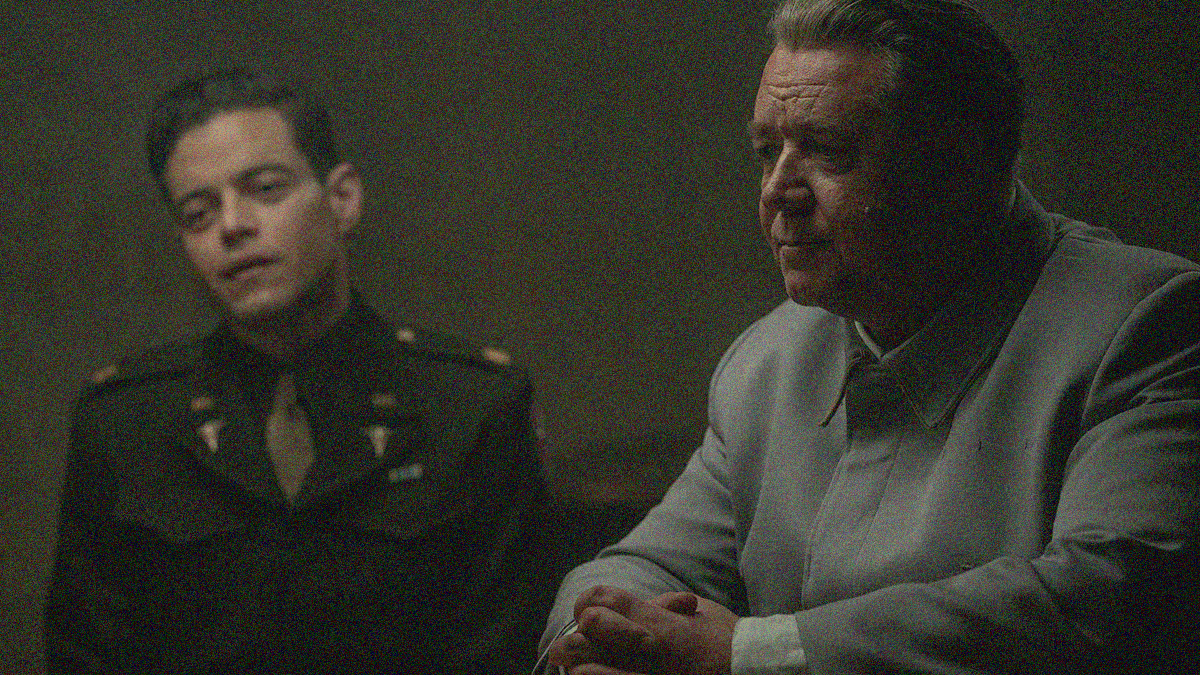
Psychiatrist Douglas Kelley (Rami Malek) didn't know why he was summoned to Colonel Andrus (John Slattery) in Nuremberg, but he quickly finds himself excited at the prospect of advancing his career upon discovering the answer. Not only is he tasked with ensuring the Nazi prisoners planned to stand trial in an unprecedented international forum (if approved to commence) wouldn't commit suicide while awaiting sentencing, but he has unfettered access to Hitler's second-in-command, Hermann Göring (Russell Crowe).
Writer/director James Vanderbilt (adapting Jack El-Hai's book The Nazi and the Psychiatrist), wastes no time revealing Kelley to be a smug opportunist at the start of Nuremberg. Whether flirting with a woman on the train (Lydia Peckham) via magic or his grin upon discovering a potential "in" as far as manipulating Göring into believing he was a friend, this is a man driven by ambition. So much so that his attempt to assuage Sgt. Howie Triest's (Leo Woodall) doubts about Kelley's "honor" land as more evidence proving he'll say anything to get his way.
Kelley is therefore the perfect foil for an infamous figure like Göring's narcissist. We're talking two sides of the same coin insofar as men seeking power through actions they consider unassailable simply because they are the ones acting. Just as he believes he's massaging Göring's ego to unlock vulnerability for a book, Göring actually does unlock the same in him. Because charm only goes so far. Once the former Oberbefehlshaber der Luftwaffe is done testing the doctor's professional boundaries by delivering letters to his wife, Kelley is genuinely pitying him.
This entire tale is about control. Not just them molding each other into real friends while deniability briefly remains on the table, but also the American government seeking to leverage control over both for the purposes of preventing Germany from a third crack at world domination. There's Andrus constantly having to remind Kelley of his job and Göring of his prisoner status and Justice Robert H. Jackson (a great Michael Shannon) using his influence to risk everything on finding Göring guilty while wielding Kelley as a spy to do so.
It's therefore about ego too. Kelley's to think he can be a monster whisperer. Göring and his confidence that he'll never see the rope. And Jackson flying blind to literally create the blueprint for how war crimes are still prosecuted today. The real question is whether either of them can find the humility to change course and evolve once they realize they've misjudged their circumstances. Because they all do. Kelley for believing a mad man. Göring for even considering he'd survive. And Jackson for assuming he could do it all himself.
While the narrative progression of these characters and their collision may prove a by-the-numbers, old school throwback of an Oscar-bait drama, the energy, humor, and performances ensure it still compels the audience the whole way through. Is two-and-a-half hours long enough to deal with the material's complexity where Kelley's psychology is concerned? No. His epiphanies always come so fast that they make him seem like a naive moron with Triest eventually having to guilt him into being honorable after defining what a real hero is.
Malek's role seems intentionally written to serve the thematic messaging more than the plot's gravitas. That's Crowe's job with a scene-stealing performance we can hope fell to him because no German actors were willing to bring someone as evil as Göring to life. No, Kelley is positioned to deliver the thesis of his lofty goal of discerning what spawns that evil so he can stop it. The answer is, of course, nothing. All men have the capacity to do what the Nazis did and all men are susceptible to willfully ignoring the signs while fostering its proliferation.
Instead of beginning Nuremberg with a quote, Vanderbilt ends with one: R. G. Collingwood's "The only clue to what man can do is what man has done." It's a blatant plea to a world lost in far-right, xenophobic, and dehumanizing politics wherein Trump's America might somehow be the closet nation to bringing the Third Reich back from the dead. Do we see those parallels in the story itself? Yes. So, it does get a little grating that the film keeps winking to make sure we're paying attention before bludgeoning us in the final scene.
It's also why many supporting actors carry weight stopping Kelley and Jackson from falling prey to the hubris they condemn. Woodall gets the show-stopping monologue, but I also liked Richard E. Grant and Wrenn Schmidt as Jackson's co-counsel and legal secretary. They remind us that the moment was bigger than its players. That, beyond entertainment, we're also bearing witness. Vanderbilt takes that to heart too by showing the archival concentration camp footage we assume was shown at the 1946 trial. It's not for the faint of heart. Nor should it be.
7/10
Peter Hujar's Day
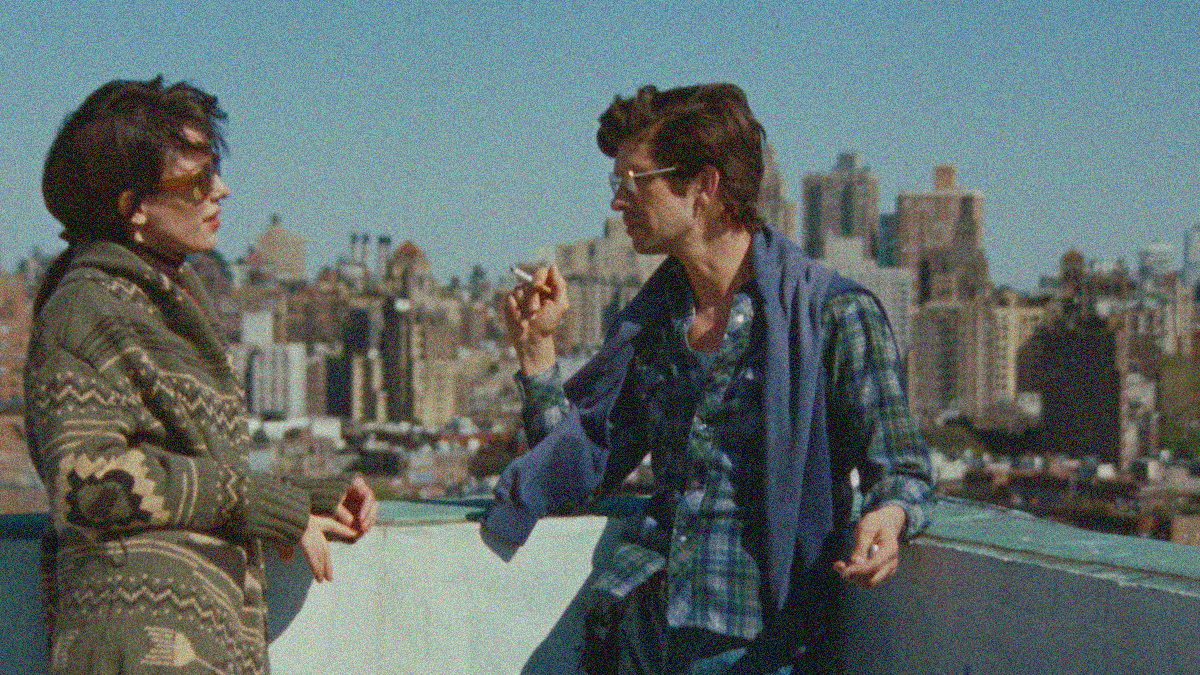
Linda Rosenkrantz wrote Talk in 1968, a "novel in dialogue" born from the taped conversations of three friends about to go on vacation at the beach. In the same vein a few years later, she came up with the concept of asking her artist friends to describe a day in their lives to write a book that could help her reconcile with what she personally believed added up to a lot of wasted time in her own life. The idea was that the exercise might lend clarity and meaning to what seemed like routine machinations. Minutiae as an in-road to identity and purpose.
The project never came to fruition, but a transcript of one of the interviews she conducted for it was eventually found many years later. Published in 2021 as a curated self-portrait entitled Peter Hujar's Day, the book ultimately found its way to director Ira Sachs. Already a fan of the late photographer, he saw the potential of adapting it into a vehicle for actor Ben Whishaw. So, with the interviewer and interviewee's words at his disposal, he crafted a sort of cinematic stage play set in Rosenkrantz's apartment as Hujar orates his recollections.
It's a fascinating curio wherein Sachs plays with the idea of facsimile in ways that obviously infer upon the act of taking and developing photographs—the description of which fills up a large portion of Hujar's (Whishaw) tale. The film begins by exposing its artifice via a set-up shot of him riding the elevator to Rosenkrantz's (Rebecca Hall) flat with clapboard in full view and the director's voice heard in the background. Another moment later reveals the boom mic almost as if Sachs wants us to remember none of what we're seeing is real.
Does it help us to focus more on the words? Maybe. Is that the goal? I'm not so certain considering all the location changes throughout. Because while the premise alludes to this being a seventy-minute-long dialogue presumably conducted in one take, we go from the living room to the balcony to the bedroom and more so the visuals never remain static. And within those room we watch as Whishaw refuses to sit still for any length of time. He eats shelled nuts, pours a drink, plays a record, etc. His body bounces around as much as his mind.
A majority of Hujar's story centers on a paid gig through the New York Times to photograph Allen Ginsberg. From there we hear his thoughts on the city, laundry list of celebrity name-drops, and penchant for lying to those who call him so he doesn't paint himself into a corner with concrete plans. The best moments are those where Rosenkrantz is familiar with the characters so she can add her own insight and spark a laugh while also coaxing out more of Hujar's infectious personality. It's two friends riding the current into quirks and asides.
And it truly is just them using this day to get his previous day's journey down. Alarm times. Phone calls. Food choices. Hujar keeps lighting cigarettes. Rosenkrantz keeps adjusting her microphone to capture his words as he dances around the space. It's a time capsule of New York City in 1974 courtesy of two perceptive residents with a way of bringing its vibrancy, shadows, and monotony to colorful life. So, don't go in thinking Sachs will surprise you by jumping off this premise. If you aren't here for what the film promises, steer clear.
Peter Hujar's Day is more about formal exercise than narrative drama. Finding ways to animate conversations without leaning on flashbacks or camera tricks. Most set-ups are static. If the characters aren't moving, the shot merely switches from Whishaw's face to Hall's. And besides a quick music interlude and some extended shots of silence creating moving portraits, it's just the free-flowing ruminations of an artist connecting mundane events to contextually relevant touchstones. The immortalization of a forgettable day in an unforgettable life.
6/10
Put Your Soul on Your Hand and Walk
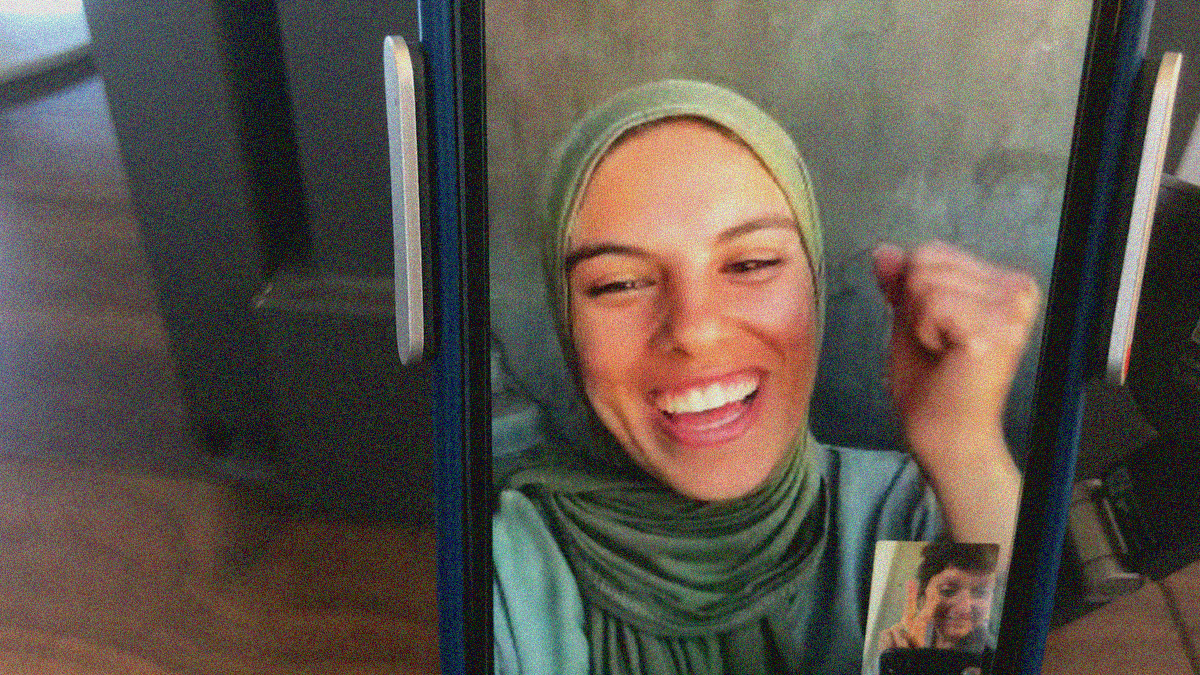
After discovering the Israelis won't let anyone from the outside world into Gaza, director Sepideh Farsi must change course as far as how to expose the harrowing stories happening within the city. A mutual friend connects her with photojournalist and poet Fatima Hassouna via FaceTime and what transpires is an almost year-long correspondence over video calls, texts, and photographs wherein the only constant is Fatima's smile. Because even as a cloud of depression sets in with ever worsening conditions, she refuses to lose hope.
Almost everything on-screen throughout Put Your Soul on Your Hand and Walk is a screen filmed by Farsi with another screen. The calls to Fatima and snippets of television news reports are always one step removed to ensure we understand just how unplanned and without resources this project proves. Neither woman knew where things would go or even what might come of their blossoming friendship. So, there was no time to professionally record screens. No time to even hire a translator to allow Fatima the ability to explain her situation in Arabic.
Whereas it was easy to question this fact early on due to the disparity between Fatima fighting for her life in different shelters while bombs dropped around her and Farsi traveling the world and playing with her cat while devastating news broke on the TV, that gulf is kind of the point. Both women speak to it too with Farsi admitting her sense of helplessness when reconciling how her life is largely unchanged by Israel's genocide of the Palestinian people and Fatima assuring her that this time together and the platform provided are help enough.
You also get the sense that Farsi's escapades become a sort of reprieve for Fatima. This is a twenty-four-year-old woman who's never left "the box" of land Israel has imprisoned her within. A talented and happy soul who craves the beauty and culture of cities like Tehran and Rome so much so that she dreams of one day visiting them all before returning to Gaza to share her experiences. Her face therefore lights up whenever Farsi tells her about her latest stop. Fatima gets to vicariously live her fantasies through her cellphone screen.
In return, she sends Farsi a collection of her photographs depicting the destruction surrounding her as well as the faces of the men, women, and children who continue to endure despite it. These images are the only ones placed directly in front of our eyes with full clarity and color—no pixelated internet connections, scratched and dusty glass, or shaky hands. They, along with a poem and brief song, not only show us what Israel has desperately tried to keep from our eyes, but also reveal the artistry, empathy, and vitality of Palestinian life.
We also receive a first-hand account of her conditions as months pass and food depletes. Fatima is able to stay at a friend's house at the start to be farther from the chaos and utilize marginally better internet before eventually needing to return to her own partially collapsed home and/or shelters to protect herself as best she can. Discussions are initially brimming with laughter as Fatima accepts her plight in a way that doesn't prevent her from still treating every breath as a gift, but not even her wealth of optimism can keep dark thoughts at bay.
And that's yet another piece to this puzzle wherein Farsi's calls become a therapy session for Fatima too. Not because the former is qualified to offer any advice, but because her presence provides a vessel for the latter to express her emotions, sorrows, and desires. Fatima can tell Farsi things she cannot tell family and friends whose own lives are falling apart too. I think the most telling part as far as exposing the conditions Israel has fostered is Fatima admitting she has no real clue when the world looks like outside Gaza's borders.
This point is driven home further by her brother constantly coming into frame during one session—not to inject himself into the movie, but to look at Farsi because he's never seen a "European" woman before (the director left Iran for France when she was eighteen for political reasons). As Fatima relays: they were happy with what little their lives were allowed to possess, so why is Israel now trying to take that away too? Something as simple as an outsider talking to them live as opposed to through a movie shouldn't be seen as profound.
It's why films like Put Your Soul on Your Hand and Walk and many others the past few years are important to humanize people that those in power have told us to fear. These aren't terrorists or even soldiers. They're simply Palestinians trying to survive while everything they've ever known is stolen. They are humans being used as pawns to prop up Benjamin Netanyahu's desire to eradicate them to his allies. Brave citizens who believe God has a plan and therefore willingly stay to remind everyone who's watching that this will forever be their home.
7/10
Weapons

Loved the structure. Loved the boldness of Zach Cregger never pretending like he had to hide who was terrorizing the town. Loved Benedict Wong running full speed into that gas station parking lot. Loved everything Amy Madigan was doing. Loved watching those kids jump through windows like Matt Damon in The Bourne Ultimatum.
Parasites on the classroom walls. Cordyceps on the television. Witchcraft on the lips of concerned parents. Cregger enjoys teasing the different ways seventeen grade schoolers could be controlled to spark a coordinated "voluntary" migration from their homes because he knows the truth is so much weirder.
While the vagueness of the why in Barbarian attempted to hide the fact that the film was rather generic beneath the chaos, Weapons is just pure chaos. It toes the line perfectly as far as showing just enough to understand intent without wasting time or attention on exposition. We’re having too much fun wrapping our heads around the insanity to care about anything else.
After all, evil is evil regardless of the origins of its methods.
8/10

This week saw Paper Towns (2015), Slender Man (2018), and The Yellow Handkerchief (2010) added to the archive (cinematicfbombs.com).
Joey King dropping an f-bomb in SLENDER MAN.

Opening Buffalo-area theaters 11/7/25 -
• All Is Merry & Bright at Regal Quaker
• Baahubali: The Epic at Regal Elmwood, Transit
• Christy at Dipson Flix, Capitol; AMC Market Arcade; Regal Elmwood, Transit, Galleria, Quaker
Thoughts are above.
• Die My Love at Dipson Capitol; AMC Maple Ridge, Market Arcade; Regal Elmwood, Transit, Galleria, Quaker
Thoughts are above.
• Diés Iraé at Regal Transit
• The Girlfriend at Regal Elmwood
• Grand Prix of Europe at Dipson Flix, Capitol; Regal Transit
• The Great Pre Wedding Show at Regal Elmwood
• Haq at Regal Elmwood
• Jatadhara at Regal Elmwood
• Karen Kingsbury's The Christmas Ring at Regal Elmwood, Transit, Galleria, Quaker
• Little Amélie or the Character of Rain at Regal Elmwood
"The film’s animation style suits this truth too with its impressionistic color fields creating dimensionality rather than relying upon outlines. It lets the real and surreal overlap so the drama is always filtered through this child’s eyes." – Full thoughts at HHYS.
• Lost & Found in Cleveland at Regal Transit, Quaker
• Nuremberg at Dipson Amherst, Capitol; Regal Elmwood, Transit, Galleria, Quaker
Thoughts are above.
• Predator: Badlands at Dipson Flix, Capitol; AMC Maple Ridge, Market Arcade; Regal Elmwood, Transit, Galleria, Quaker
• Sarah's Oil at Dipson Capitol; AMC Maple Ridge; Regal Elmwood, Transit, Galleria, Quaker
• Unexpected Christmas at Regal Transit, Quaker
Streaming from 11/7/25 -
• Abraham’s Boys: A Dracula Story (Shudder) - 11/7
• Baramulla (Netflix) - 11/7
• Downton Abbey: The Grand Finale (Peacock) - 11/7
• Frankenstein (Netflix) - 11/7
• Groom & Two Brides (Netflix) - 11/7
• Mango (Netflix) - 11/7
• Materialists (HBO Max) - 11/7
• Sovereign (Hulu) - 11/7
• A Merry Little Ex-Mas (Netflix) - 11/12
• Being Eddie (Netflix) - 11/12
• Eloá the Hostage: Live on TV (Netflix) - 11/12
• Freakier Friday (Disney+) - 11/12
• Playdate (Prime) - 11/12
• Jane Austen Wrecked My Life (Netflix) - 11/13
"The comedy is lively and infectious, especially whenever Rutherford and Anson are together playing coy so as not to let their defenses down. And the supporting cast is wonderful." – Full thoughts at HHYS.
• Tee Yai: Born To Be Bad (Netflix) - 11/13
Now on VOD/Digital HD -
• The History of Sound (11/1)
• Bang Bang (11/4)
"Similar to Old Henry, [Nelson] really sinks his teeth into the role to embody the gruff exterior while still maintaining a level of pathos that ensures he never alienates the audience." – Full thoughts at HHYS.
• Black Phone 2 (11/4)
• Cottonmouth (11/4)
• Day of the Fight (11/4)
• Dorothea (11/4)
• Fairyland (11/4)
• I Really Love My Husband (11/4)
• Icefall (11/4)
• Killing Faith (11/4)
• Omniscient Reader: The Prophecy (11/4)
• Peas and Carrots (11/4)
• Plainclothes (11/4)
"It’s a fantastic turn by Blyth as he treads through the innocence and pleasures of desire while existing in a walled-off prison of prejudice pretending to be morality." – Full thoughts at HHYS.
• Satisfied (11/4)
• The Smashing Machine (11/4)
• Sunfish (& Other Stories on Green Lake) (11/4)
"The scenery is gorgeous, the players three-dimensional in their yearning, and the overall vibe a heartfelt shot of nostalgia for sleepy summers, new friends, and indelible experiences possessed with the power to alter the very fabric of your soul." – Full thoughts at HHYS.
• V/H/S/Halloween (11/4)
• Waltzing with Brando (11/4)
• The Wedding Party (11/4)
• Year One (11/4)
• After All (11/7)
• The Beldham (11/7)
• Exit Protocol (11/7)
• Good Fortune (11/7)
"It’s a well-made directorial debut that shows a love for cinematic history and a unique sensibility to build upon it rather than simply homage. Communal entertainment with lighthearted surrealist fantasy and relatable everyman problems." – Full thoughts at The Film Stage.
• Out of Time (11/7)
• Pistachio Wars (11/7)
• The Sparrow in the Chimney (11/7)
"This is a haunted house story by way of human truth rather than supernatural horror. Karen mustn’t defeat anything. She must only be willing to let go." – Full thoughts at HHYS.
• Stone Cold Fox (11/7)

Pieces from the The Majestic (2001) press kit.
